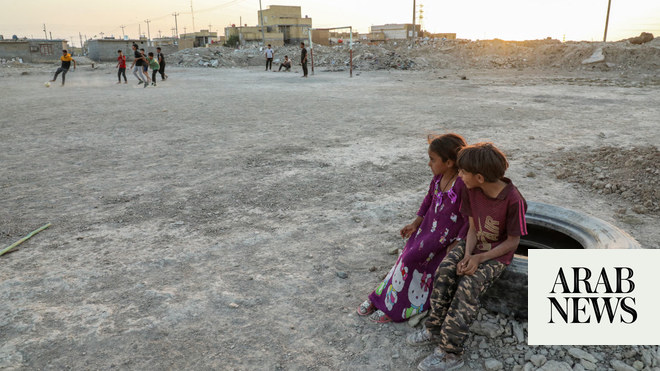
The United Nations Childrens Fund (UNICEF) said, in a report released on Monday, that about 180 million children in 37 countries are more likely to live in extreme poverty, be out of school or suffer a violent death than 20 years ago.
Unrest, conflict and poor governance are among the main causes of the decline in quality of life for one in 12 of the world’s 2.2 billion children, the report showed.
The steepest declines were seen in South Sudan, which is in the midst of civil war and where children fared worse than the previous generation in all three categories.
“While the last generation has seen vast, unprecedented gains in living standards for most of the world’s children, the fact that a forgotten minority of children have been excluded from this - through no fault of their own or those of their families - is a travesty,” said Laurence Chandy, Unicef director of data, research and policy.
More than 14 countries - including Cameroon, Zambia and Zimbabwe - have seen an increase in the share of people living on less than $1.90 (R26.70) a day.
And a decline in primary school enrollment was observed in 21 countries, including Syria and Tanzania.
Violent deaths among children below the age of 19 have increased in seven countries - Central African Republic, Iraq, Libya, South Sudan, Syria, Ukraine and Yemen - all countries experiencing major conflicts.
The report was released to coincide with World Children’s Day, which marks the anniversary of the UN adopting the Convention of the Rights of the Child in 1989.
Moreover, a UNICEF survey issued in conjunction with World Childrens Day revealed that almost seven out of 10 children in Malaysia worry a lot about bullying, compared to only three out of 10 children in Japan and close to four in 10 in the United Kingdom.
UNICEF added in a statement that Malaysian children also worried a lot about other global issues like violence against children (64 percent) and terrorism (60 percent), while their top picks for world leaders to focus attention on were education for the poor (17 percent), poverty and terrorism (15 percent).
The comparative survey involved 11,000 boys and girls, aged between nine and 18 years, in 14 countries from all regions across the world, including Malaysia, Brazil, Egypt, the US and India.
UNICEF expressed hope that World Children’s Day would inspire governments, businesses and communities around the world to listen to children, and incorporate their opinions in decision-making processes that affect them.











